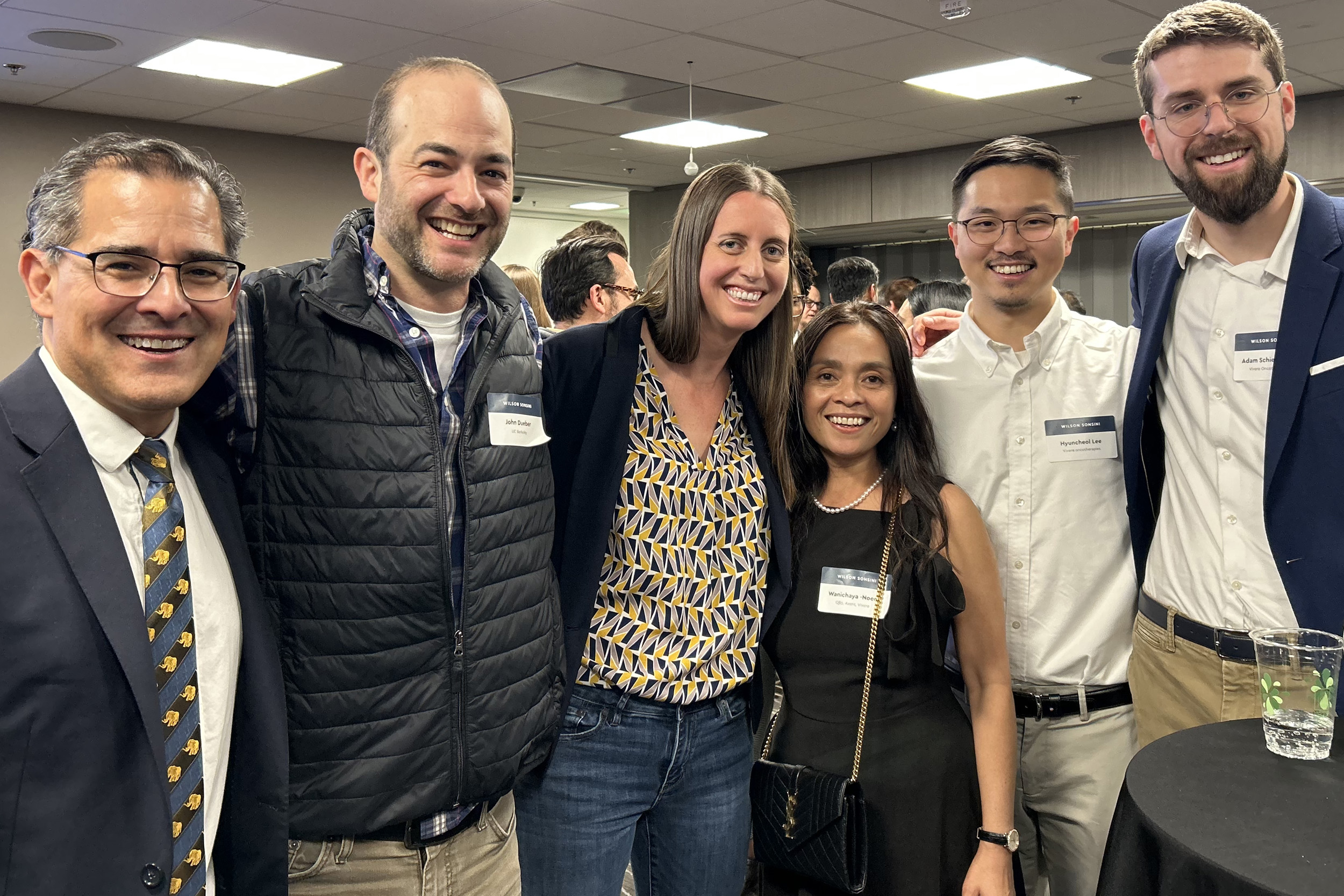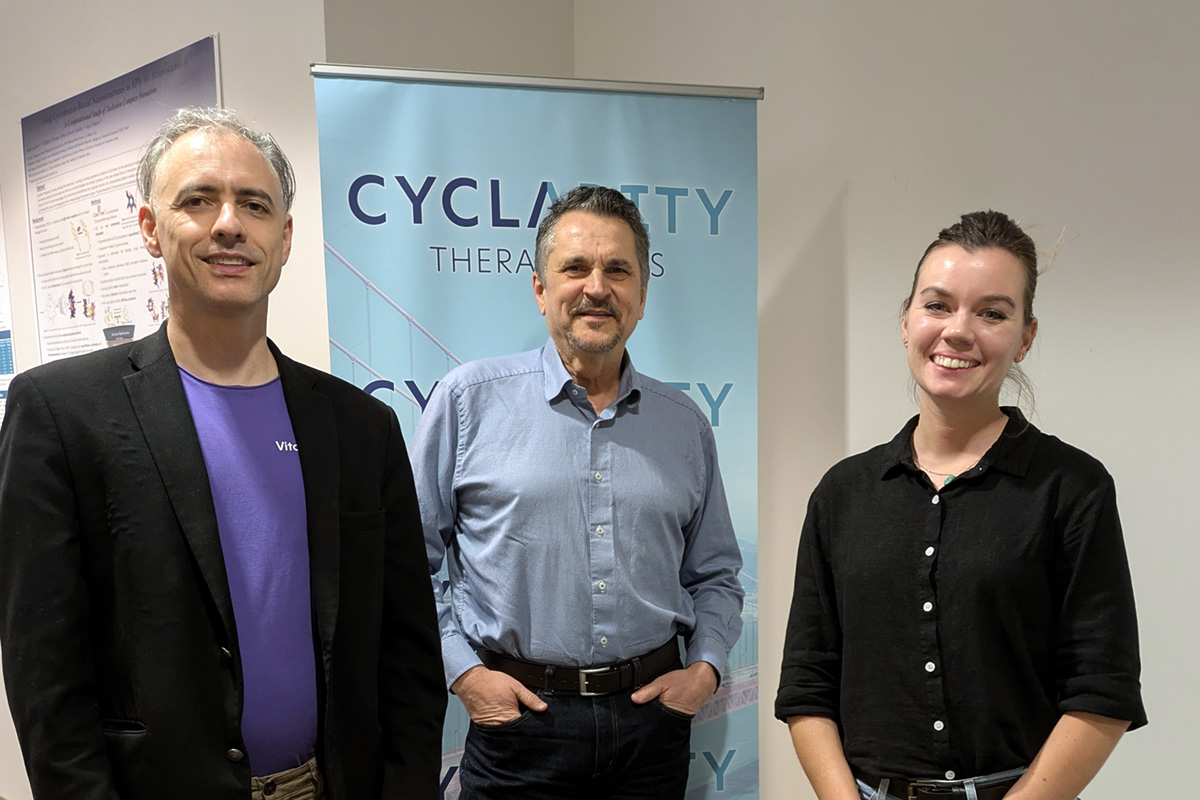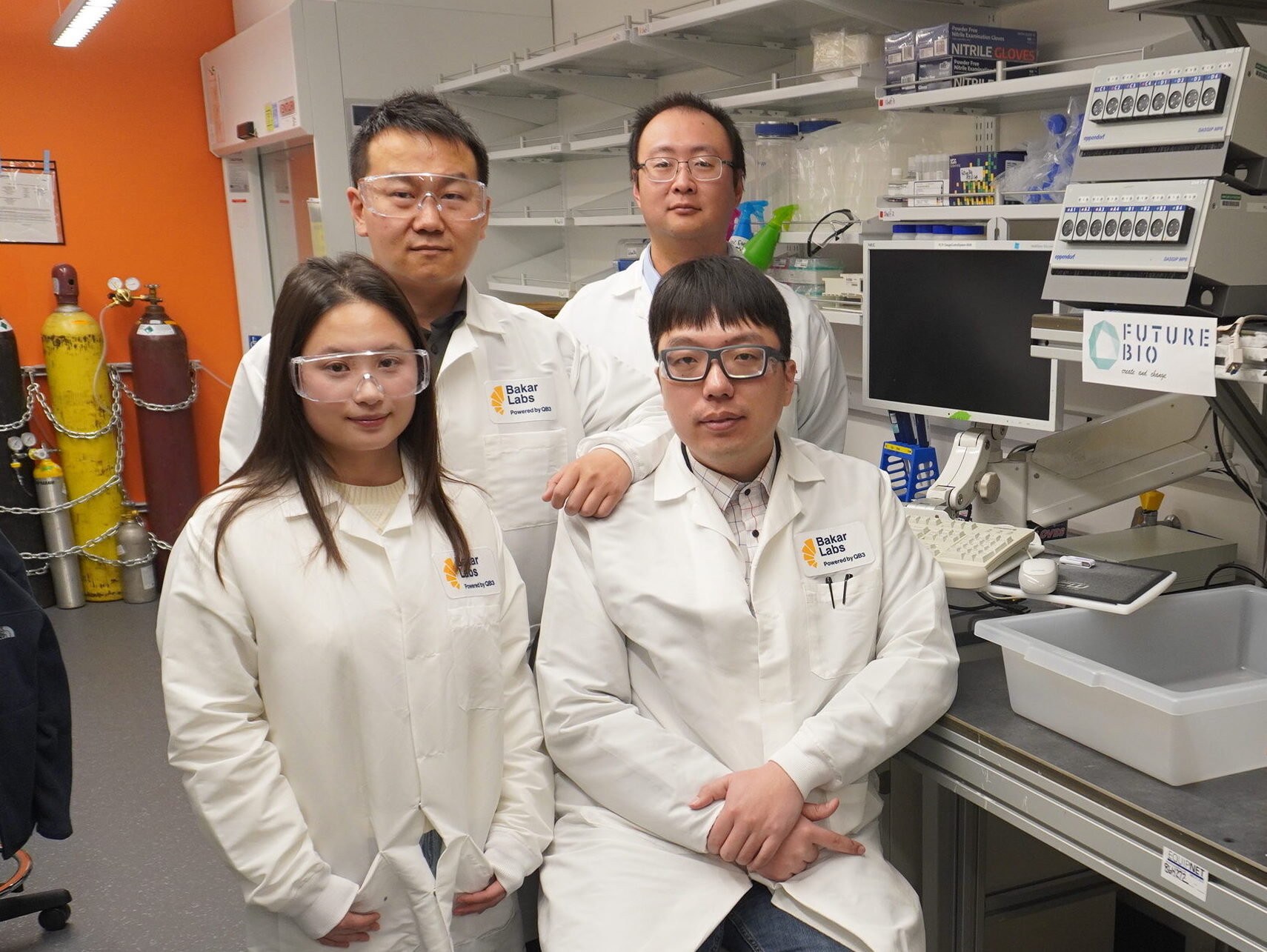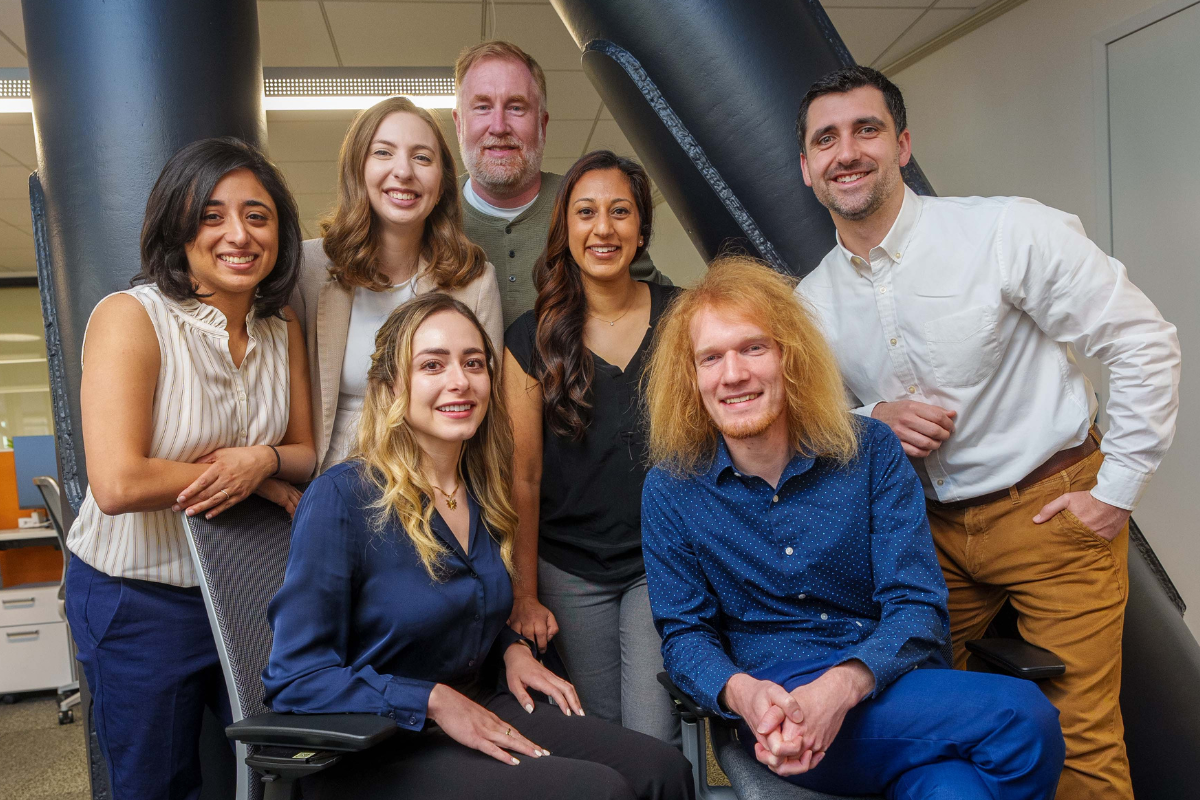Tenant Spotlight on Aikium: A Trillion Shots at Targeting Tangled Proteins
By Niki Borghei
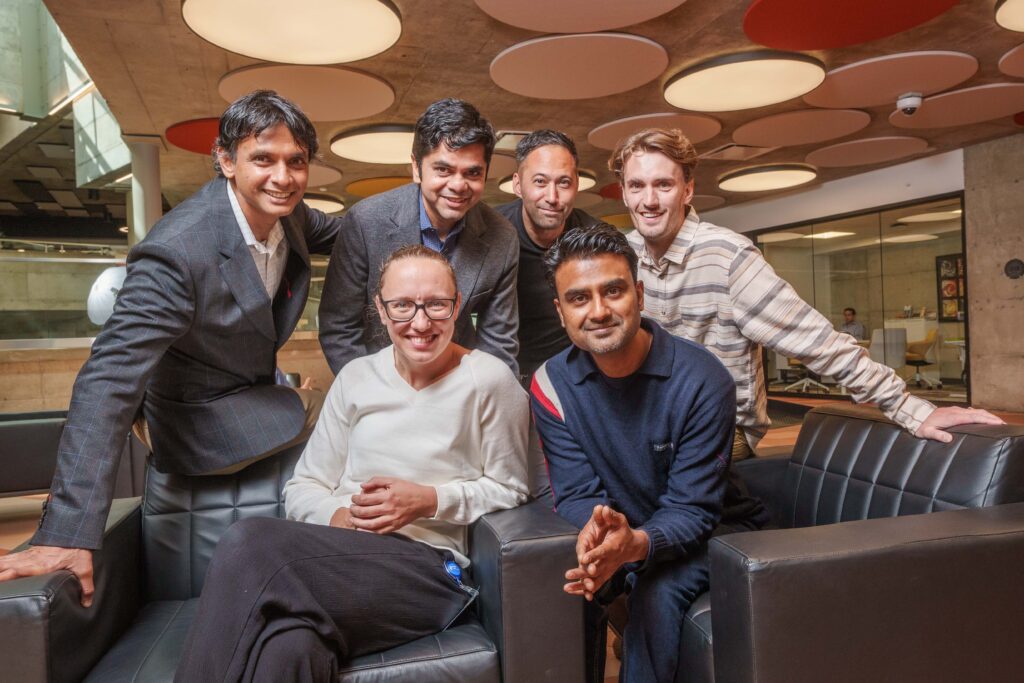
Drug designers almost always aim to disable a target protein’s function, often with small molecules that jam binding sites, or by deploying protein biologics to latch onto a larger surface of the targets. But what to do when your target has no real structure? It’s just a floppy, disordered mess! This is a real, unsolved challenge.
Some companies are trying to solve this problem by going after the disordered or unstructured proteins with small molecules. Others are trying to force antibodies to glom onto these chaotic regions. Aikium, a protein engineering startup at Bakar Labs, has another solution.
Aikium has essentially invented a new protein family. Called “SeqR” proteins, they are sequence specific binders that can be applied to different therapeutic needs such as cancer, neuro-inflammation, and some autoimmune disorders. Aikium is going after chemokine receptors, a subset of G-protein coupled receptors, a large class of molecules that have long proven difficult to target. By virtue of being on immune cells, they are front and center in cancer and immune-mediated diseases.
While RNA therapeutics completely block the translation of the target protein, SeqRs offer a more nuanced way to modulate the function of the target protein by binding to the disordered regions.
“We asked ourselves, if you could build a protein that could bind to these unstructured or disordered regions, what would it look like?” says Venkatesh Mysore, one of the three co-founders of Aikium. “You also have to take into account that if you want it to become a drug, it has to look like one of our body’s proteins, otherwise the body will reject it. So it has to come from a protein in the human body, maybe doing something else, that can be repurposed into a universal binder of disordered regions.”
Starting from existing human proteins, Aikium employs patented generative AI methods. They are the first protein engineering company in the world to use a certain class of large language models based approaches for protein engineering.
“You may have heard of ChatGPT and other LLMs,” says Venkatesh. “Those are applicable even in the world of proteins if you envision proteins as letters in a sentence of amino acids. Aikium incorporates breakthroughs in LLMs that have not yet been embraced by others in the protein engineering world.”
Aikium’s LLMs enable Venkatesh and his team to design SeqR proteins for any given target. But how do we know these new therapeutics might actually work? Real experimental data is key, and that is where the co-founders Shankar Shastry and Eswar Iyer come in.
“You can do all the fancy modeling you want on a computer,” Venkatesh says. “It’ll look beautiful, and everything will appear to bind as predicted. But, of course, the real world is far more complex than what any model can demonstrate, and so it may not actually work when tested. That’s why it’s crucial to build a very large set of proteins and be able to test which ones actually work.”
Think about it this way. If you have one dart, it’s unlikely that it’ll hit the bullseye. But what if you had one hundred? One thousand? One million? Then the chances are much higher.
The same goes for protein engineering. A typical protein engineering company may be able to throw about one million darts at the target at one time. Some companies have pushed this to one billion. Aikium is at one trillion. “To the best of my knowledge, we are the only protein engineering company with this capability,” Venkatesh says.
In fact, Bakar Labs may be the first place where a protein library of over one trillion has ever been synthesized. Aikium’s platform, called Yotta Display, is an industrialized proprietary variant of mRNA display, which has been previously made to work only in the world of short peptides. Aikium has synthesized more than ten target-specific trillion protein libraries, performed multiple rounds of positive and negative selection, and obtained millions of data points about how SeqR-like proteins bind to GPCR-like targets.
With such groundbreaking achievements in protein engineering, it’s clear that innovation is at the heart of this company’s mission. Equally impressive is their enthusiasm for collaboration, which shines through in their appreciation for Bakar Labs. The state-of-the-art facilities and supportive environment not only enhance their scientific endeavors but also foster a culture of creativity and discovery.
“We really feel like we belong,” Venkatesh says. “Being able to network with the Berkeley community and connect with other entrepreneurs has been incredible.”
Does being a part of this groundbreaking startup and community here at Bakar Labs sound appealing to you? Aikium is hiring!
